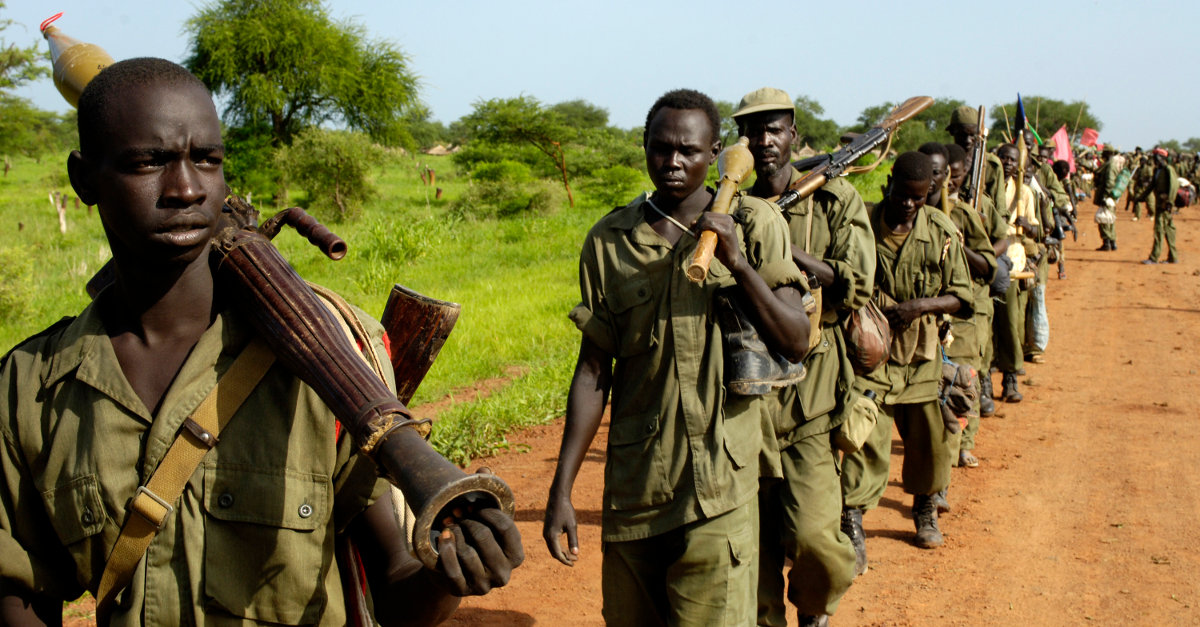South Sudan Vows To Push Through With Elections
The developing crisis in South Sudan

NEW DELHI: South Sudan has said that it will go ahead with elections, despite the United States and other foreign countries refusing to support the ballot. South Sudan’s foreign affairs minister, Barnaba Marial Benjamin, asked the international community to rethink its decision, calling it “disappointing.”
“It is unfortunate that some countries have decided to withhold providing support for elections, which is an essential component of democracy and one of the international mechanisms to allow the citizens to choose the leaders of their choice to different level of government,” Benjamin said.
Benjamin said that whilst the US had refused to support the elections scheduled for May and June, it would continue to offer assistance in other areas such as education, health, agriculture and humanitarian issues. “Their (the international Community) concern for withholding support for elections is that there is a security [threat]. They are talking about transitional arrangements, which you know very well the government has done so much. The president has made a lot of the compromise. He has accepted the creation of the position of the prime minister which is not there in the constitution – but because of peace, he accepted,” said Benjamin.
“The international community should have appreciated this gesture and work together with the [South Sudanese] government so that those who are not moving should move,” the Minister said, adding that a failure to proceed with the elections could result in a power vacuum and hence, a “constitutional crisis” in the country. “It is not in the interests of the people of this country to allow [a] power vacuum and illegitimacy. They should be given the opportunity to decide through elections.”
The US’ and other foreign countries decision to not support the elections is based on the rationale that peace needs to be restored in the troubled country before elections are held. US ambassador Charles Twining told reporters at a news conference in the capital, Juba that “We continue to think that there was not much time to organise the election. There was no security for the organisation of the election and no personnel to finance this election.” Twining however added that “On the other hand, you are a sovereign country and you can have elections tomorrow if it is what you believe is appropriate. We do not believe it is appropriate because a peace process is underway and we want to see the peace process concluded.”
The conflict in South Sudan, which won independence from Sudan in 2011, has left thousands dead and over a million displaced since December. The conflict began with a skirmish in the capital city of Juba between forces loyal to the President, Salva Kiir, and those loyal to the former Vice President, Riek Machar, spread from a city-wide to national conflict.
The context of tribalism and frustration with government corruption fuelled the conflict, particularly in areas where the majority Dinka tribe was living alongside other tribes. The pro government and rebel forces are organised according to these ethnic dimensions, with President Salva Kiir’s Dinka tribe pitted against militia forces loyal to Machar’s Nuer people.
Kiir still maintains control of the capital and large swathes of the army, and is backed by troops from Uganda. Rebels say Kiir is a dictator, whilst pro-government factions have accused Machar of inciting a coup that led to the violence. As the two sides gain and lose territory sporadically, rights violations and civilian abuses continue despite a ceasefire signed earlier this year.
The UN report coincides with a ceasefire signed between Kiir and Machar, although analysts doubt both sides’ commitment to negotiation. The UN has previously referred to the conflict in Sudan as a “massacre,” when in April rebel troops overran Bentiu, the capital of the oil producing Unity state. More than 200 muslims seeking shelter inside a mosque were killed after rebel forces seized the town, prompting the United Nations Mission in South Sudan (UNMISS) to condemn the “targeted killings of civilians based on their ethnic origins and nationality.”
Pointing to the sectarian nature of the conflict in South Sudan, the UN said those “associated with the opposition” had used radio services to broadcast hate speeches, urging "men from one community to commit vengeful sexual violence against women from another community.”
“They [rebel forces] searched a number of places where hundreds of South Sudanese and foreign civilians had taken refuge and killed hundreds of the civilians after determining their ethnicity or nationality," the report stated, adding that those killed included members of the Nuer ethnic group who did not join other Nuers in cheering for the rebels.
At the Kali-Ballee mosque, where many had taken shelter, the rebels “separated individuals of certain nationalities and ethnic groups and escorted them to safety, while the others were killed.”
South Sudan rebels have denied the UN’s claims, saying that others, including government forces, were behind the killings.
The capture of Bentiu, was followed by the storming of a UN base in South Sudan in the war ravaged government controlled town of Bor, where at least 58 people were killed, most belonging to the Nuer tribe. The attack led the South Sudan government to pin responsibility on the UN. “The UNMISS force shot bullets on air. Their shooting of bullets on air provoked the situation," Information Minister Michael Makuei Lueth told reporters, in a statement reflective of the deteriorating security situation in South Sudan. A spokesman for UN chief Ban Ki-moon said the attack on the UN base was a "serious escalation" in the crisis and that "any attack on United Nations Peacekeepers is unacceptable and constitutes a war crime."



